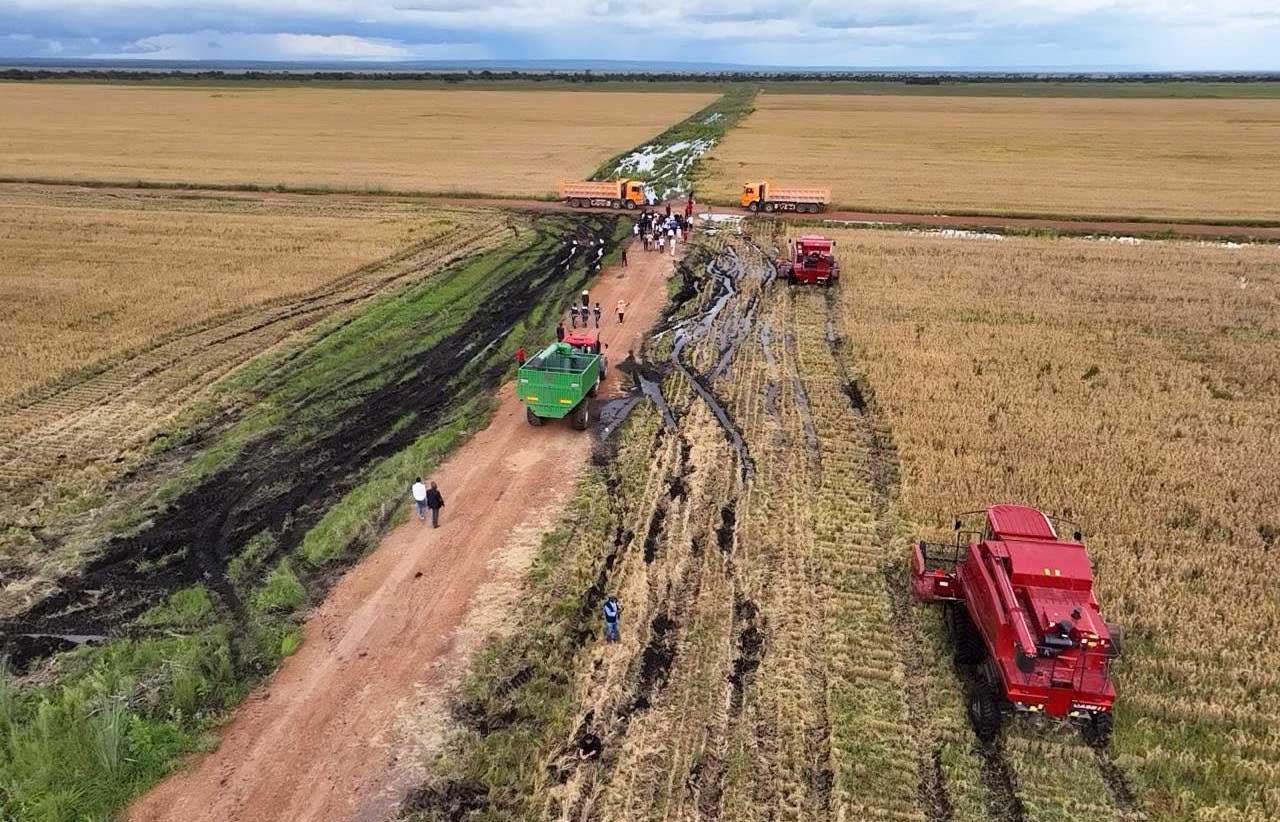Africa-Press – Botswana. The picture of farming as a man’s domain is gradually changing as more women answer the call to produce food for the nation.
One of these pioneers is based in the sleepy village of Rakhuna.
Ms Linda Masinta acquired her small holding in 2011 and learnt the basics of farming from her father, who used to grow maize and watermelons.
Speaking to BOPA recently at her farm located on the outskirts of Rakhuna, Ms Masinta pointed out that after getting enough experience, she decided to venture into horticulture using the government’s Accelerated Impact Subsidy (IAS).
She identified passion and a will to succeed as key prerequisite for anyone interested in venturing into farming.
She pointed out that the reason most people did not succeed in farming was because they get into it expecting to make overnight profits, hence got discouraged when they realised that it was not a get-rich-quick scheme.
In her case, she was so determined to make her dream of being a successful farmer come true that she gave up many things that she loved as a young person, such as city life and everything that goes with it.
“Though it was a completely new undertaking for me, passion and perseverance saw me through,” she explained.
She urged other women to venture into farming and to take advantage of various government schemes aimed at assisting farmers and ensuring food security such as AIS. The Rakhuna native said applying for the subsidy was not hard because all that was required was for one to have a reliable water source or a borehole which pumps at least 2.5 cubic litres per hour, land of not less than half a hectare, be a Motswana and aged over 18 years.
Ms Masinta said she got the grip of what was needed to succeed in a field, and intended to grow bigger with each ploughing season.
She is currently harvesting tomatoes in her two tunnels, which cost her P100 000 each to build.
“The reason I opted for the tunnels is that the weather in the southern part of the country is very unpredictable and winter months are long. So, the tunnels help to protect plants from the frost and hail storms,” she said.
Ms Masinta pointed out that the other advantage of tunnels was that they helped keep away pests and small animals that damaged crops.
She cautioned that one needed to be hands-on and always be on the farm to ensure that everything went according to plan, adding that being a weekend farmer was a recipe for disaster and failure.
Ms Masinta said that the good thing about farming was that there was always room to learn new things as every season presented new challenges, especially those of diseases.
“I am now able to control pests and diseases alone and I can also unblock my drip irrigation system from time to time,” she said proudly.
She said that the time was now for women to break the barrier and venture into this male dominated field because user-friendly farm machinery that everyone could operate made it easy.
She asserted that though sometimes it took time to realise returns, farming was one of the sectors that could help end poverty, which was rife amongst women.
For More News And Analysis About Botswana Follow Africa-Press






